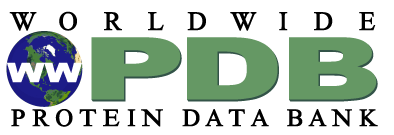2014 RCSB PDB Video Challenge for High School StudentsStructural View of HIV/AIDS |
 |
2014 Video Challenge
Winners | Entries | Judges | Overview | Learning Resources
Note: Videos are intended for communication and not rigorous scientific review.
In 2015, an additional Service to the Community Award was awarded by the AIDS Education Training Center (AETC) National Resource Center. AETC committed to include the winning video among the training materials for health care professionals, patients and their families.
Congratulations to the 2014 Winners:
The Lifecycle of HIV
By John Quinlan, Kim Parker, Lisa Pullockaran of Hopewell Valley Central High School (Team Advisor: Karen Lucci)- Winner of the Judge's Award First Place
- Winner of the Viewer's Choice Award
HIV: A Cellular Hijacker
By Oneida Shushe of Colonie Central High School (Team Advisor: Jason Goldberg)- Winner of the Judge's Award Second Place
- Winner of the Service to the Community Award
HIV and Cancer
By Pragnya Iyengar, Angela Gao, Shaina Brahma, Aashna Chopra of West Windsor-Plainsboro High School South (Team Advisor: Cindy Jaworsky)- Winner of the Judge's Award Third Place
2014 Challenge Overview
In 2014, the RCSB PDB invited high school students for the first time to create short videos that tell a molecular story about HIV/AIDS. The video had to include a visualization/animation of two or more molecular structures from the PDB, and be focused on any topic related to the structural biology of HIV/AIDS, such as:
- The partial or complete life cycle of HIV
- HIV vs. the human immune system presenting the scenario of what likely happens in an individual upon exposure to HIV
- HIV testing to detect infection and as a follow-up during anti-HIV treatment
- Anti-HIV treatment options and the challenges of drug resistance
- HIV vaccines
- HIV and cancer
- Any other aspects of HIV/AIDS of interest
2014 Dates
The video submission opened February 17, 2014 and concluded on May 31, 2014. The submitted videos can be viewed online. Award winners were announced at rcsb.org on June 17, 2014.
2014 Learning Resources
2014 participants were encouraged to use all available PDB-101 resources.



